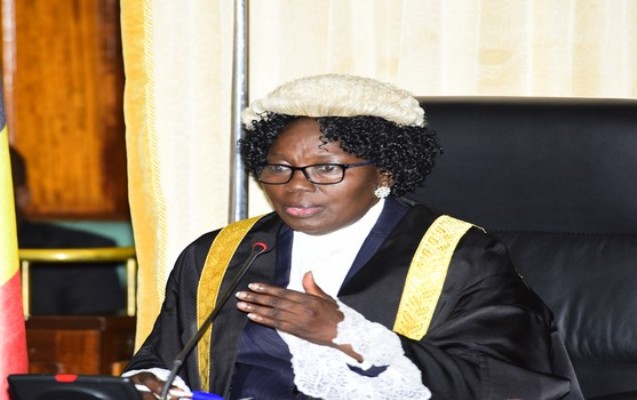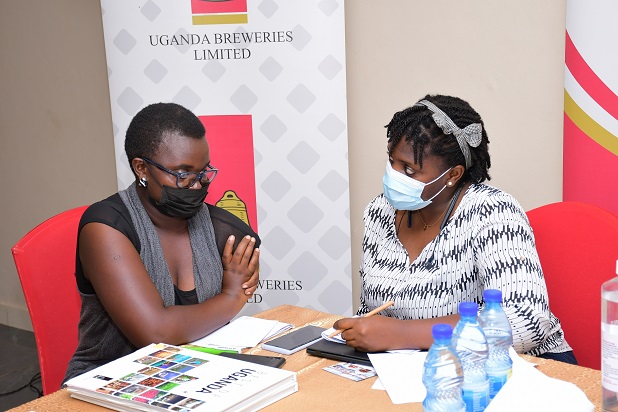The Micro, Small and Medium Enterprises (MSMEs) are now able to get free accountancy services from professionals, under an initiative aimed at ensuring improved financial management for better business operations.
The move by the Institute of Certified Public Accountants of Uganda (ICPAU) aims to assists MSMEs recover from the effects of COVID-19. It is also one of the efforts by ICPAU to enable the enterprises to access quality professional services, which efforts also include regularly publishing of licensed practitioners.
Micro enterprises are those businesses employing not more than five people and have total assets not exceeding 10 million Shillings, while small enterprises employ between five and 49 people and have total assets between 10 and 100 million Shillings. Medium enterprises are larger, and employ up to 100 people, while their asset value ranges between 100 million 360 million Shillings.
Surveys by the Uganda Bureau of Standards show that these small, informal or unregistered enterprises account for more than 90 per cent of the business in the country. The slow growth and/or failure of MSMEs in Uganda and many low-income countries is usually blamed on the lack of track records, like financial performance history.
This makes it hard for them to approach or convince the formal financial institutions to lend to them as the security of the load can hardly be guaranteed. It also means without these practices, such enterprises cannot access the opportunities for tenders from government and big corporations and it also becomes hard to get partnerships with formal companies or get listed on the stock markets, a source of long-term and affordable capital.
Under ordinary circumstances, the amount charged by an accountant depends on the time the task takes, the risk involved and how much work is at hand. But, now free services will be provided to entrepreneurs who apply by June 2022, via the email standards@icpau.co.ug.
According to the plan, business owners will obtain support in accounting, audit, assurance and advisory, taxation, management consulting, cash-flow management, risk management and transaction services, insolvency practice, and funding applications. CPA Mark Omona, the Director of Standards at ICPAU says that MSMEs require the services of licensed accounting firms in order to improve their business processes and drive their growth and profitability.
“The auditors possess expert knowledge and experience which help them advise the MSMEs on how to streamline their processes and improve them, especially taking into account the effects of COVID-19. Business advisory from auditors further helps business owners to make cost savings within their supply chain,” CPA Omona said.
According to ICPAU, the pro-bono programme targets businesses in sectors like governance and security, private sector development, public sector transformation, agro-industrialisation, tourism, education, manufacturing, digital transformation, sustainable urbanisation and housing, and human capital development.
Omona also warned enterprises, especially public institutions against employing unlicensed or unprofessional people to head their accounting departments. The accountants’ body will not be regularly publishing individuals and firms licensed to conduct accountancy services, as part of the new licensing regime.
As of March 15, this year, there are 415 practising accountants and 260 accounting firms licensed to offer accounting services in Uganda. The published list comprises those licensed to conduct all accounting services, and those to carry out non-assurance services.
‘Non-assurance services’ are those that do not require the professional accountant to express an opinion about the credibility of financial or non-financial subject matter, like the preparation of financial statements, risk management, tax services, financial planning, business valuation, and management consulting, among others.
The separation of the license categories follows a survey conducted by ICPAU in August 2021, where respondents agreed on the need to review the licensing framework for practising accountants. “The practising accountants are excited about the specialisation that this new licensing regime will spur. We hope to have more members apply to practise in the non-assurance category as we increase awareness about it,” said CPA Mark Omona.
The Accountants Act, 2013 criminalises practising accountancy without approval or a Certificate of Practice, and culprits are liable to fines and imprisonment. Also, using licensed accounting firms gives credence to the output and enhances quality, because licensed practising accountants are deemed to possess the required competencies and experience to provide high standard accounting services.
In case of quality gaps in the accounting processes, the affected party can report the accountant to the Quality Assurance Board of ICPAU for redress.
“The nature of work that practising accountants perform requires that they are closely regulated to enhance the level of confidence among users of their services, and in a way offer some protection to the wider public,” said CPA Mark Omona.
In addition to publishing the list of licensed firms, ICPAU collaborates with the Uganda Police Force to identify and crack down on quack accountants in Uganda.





